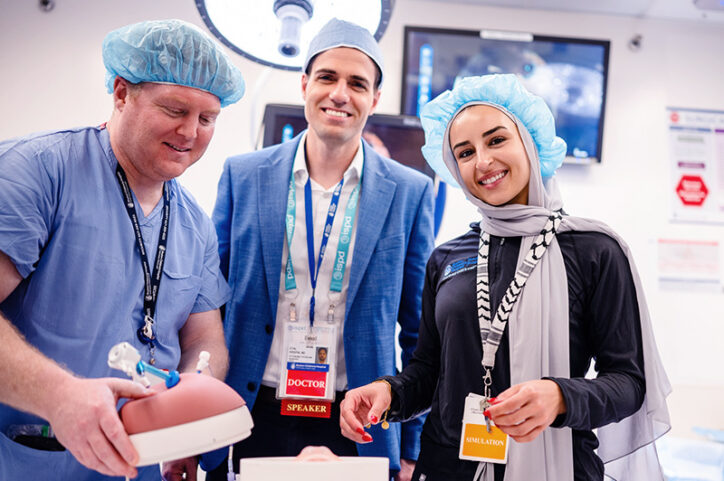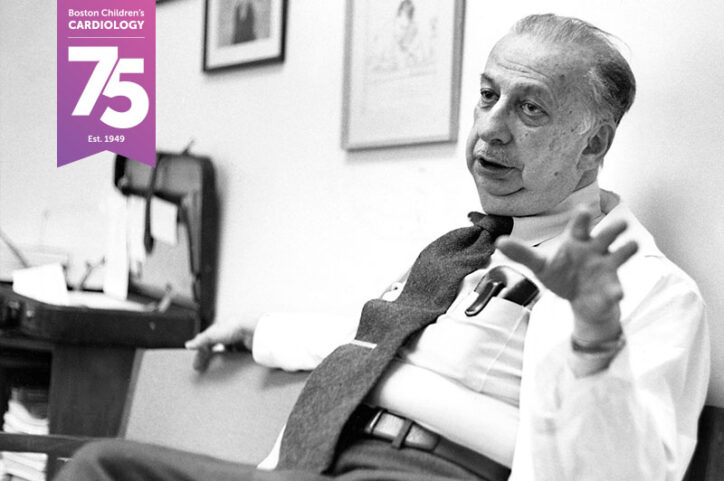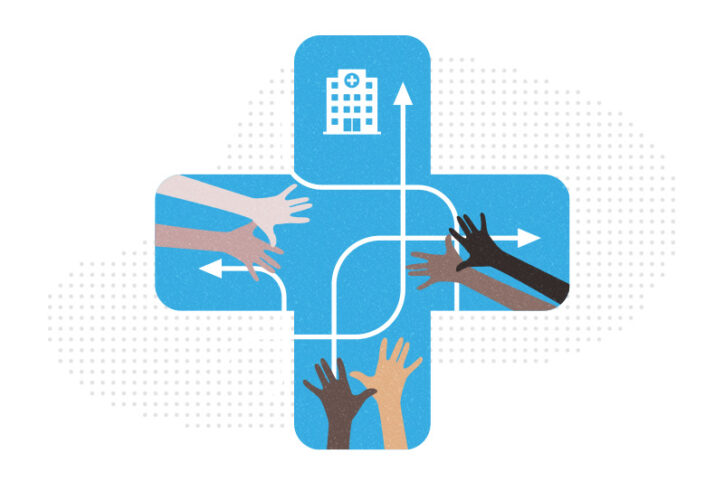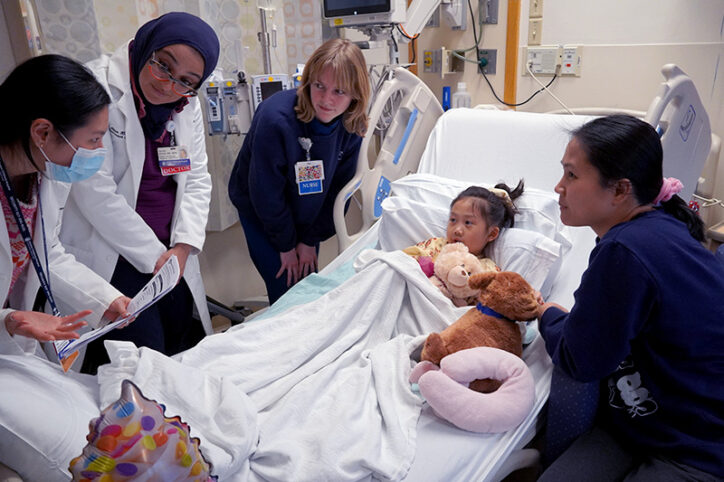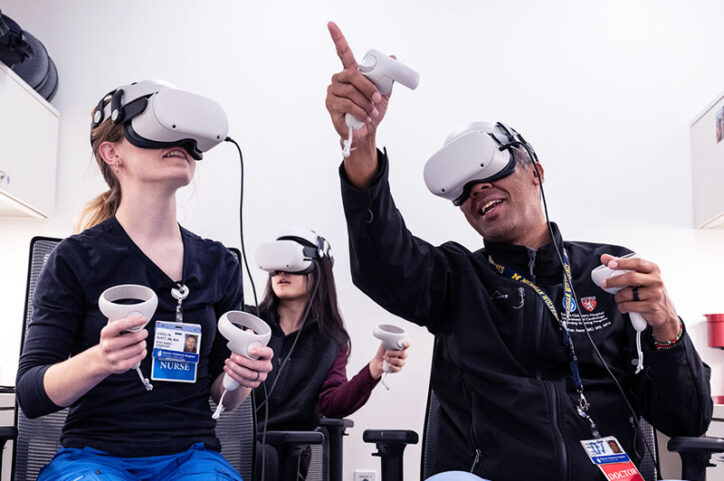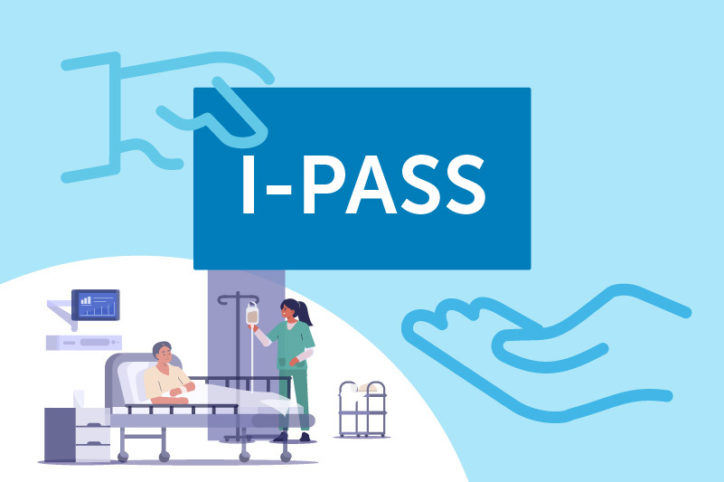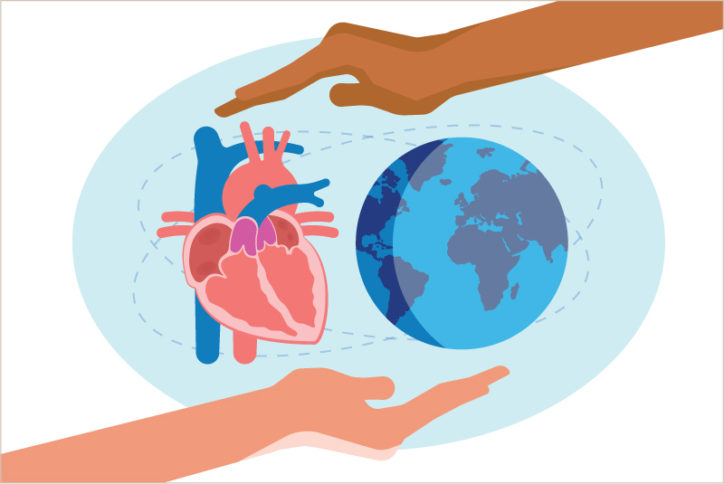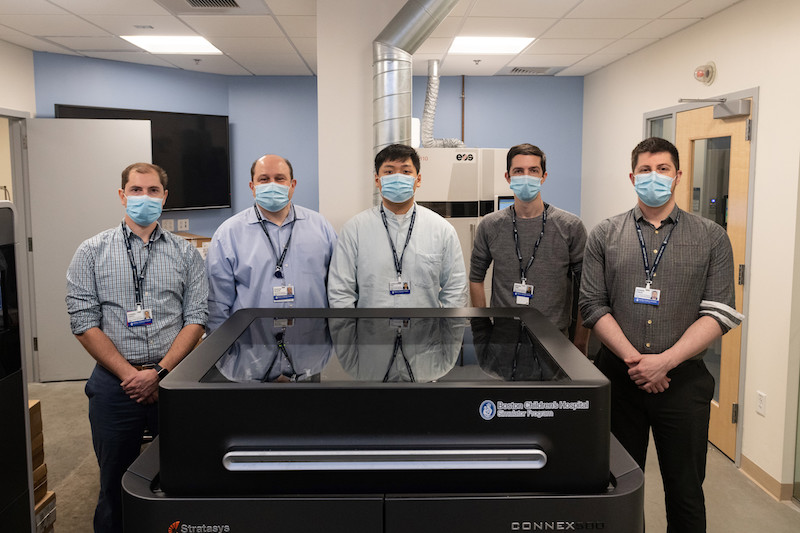Archive for medical training
‘Zero place for mistakes’: Taking fetal surgery to the next level with simulation
The highly complex interventions involved in fetal surgery require exceptional skill, training, and experience. Beyond the procedures themselves, these surgical scenarios depend on the ability of team members to work in concert. It’s a seamless collaboration that’s even more crucial when two patients — the pregnant person and fetus — are involved. When the Fetal ... Read More about ‘Zero place for mistakes’: Taking fetal surgery to the next level with simulation
The people and advancements behind 75 years of Boston Children’s Cardiology
Boston Children’s Department of Cardiology has more than 100 pediatric and adult cardiologists, over 40 clinical fellows learning the routines of heart care in a major hospital, 12 echocardiogram rooms dedicated to testing the function of a child’s heart, and five labs equipped to perform advanced catheterization procedures. Many other numbers could highlight the dedication that the ... Read More about The people and advancements behind 75 years of Boston Children’s Cardiology
Revisiting race and ethnicity in clinical guidelines
Health care institutions often rely on clinical pathways in assessing patients and making decisions about their care. Some of these care algorithms incorporate race, ethnicity, or ancestry as factors in decision making. But is this helpful or harmful? And is there solid evidence to justify treating people of different racial or ethnic backgrounds differently? Robert ... Read More about Revisiting race and ethnicity in clinical guidelines
Tagged: diabetes, eczema, emergency medicine, fever, health equity, medical training, racism
Helping clinicians embrace family-centered rounds
If you’ve ever been hospitalized, you may have experienced this: groups of doctors coming in and talking about you like you’re not there or addressing you in a perfunctory manner, using medical jargon you don’t understand. Peggy Markle was taken aback when her son was hospitalized for a not-yet-defined condition in Washington and his care ... Read More about Helping clinicians embrace family-centered rounds
Tagged: family partnerships, health equity, medical training, safety
Infantile spasms: Speeding referrals for all infants
Infantile epileptic spasms syndrome (IESS), often called infantile spasms, is the most common form of epilepsy seen during infancy. Prompt diagnosis and referral to a neurologist are essential. Infantile spasms can present subtly, and research indicates that diagnosis is often delayed. Additionally, infants are especially likely to experience delays in referral to a neurologist if ... Read More about Infantile spasms: Speeding referrals for all infants
Helping aspiring clinicians understand a virtual heart before they work with a real one
Jonathan Awori, MD, MS, MFA, isn’t embarrassed to say it took him a long time to completely understand the intricate workings of the heart. He says he isn’t alone; many aspiring doctors and nurses don’t immediately grasp the heart’s complexity from two-dimensional textbooks or even 3D-printed models. Now that he’s a pediatric cardiology fellow at ... Read More about Helping aspiring clinicians understand a virtual heart before they work with a real one
I-PASS this patient to you: Improved hospital ‘handoffs’ cut adverse events by almost half
About 15 years ago, Boston Children’s Hospital pediatricians Christopher Landrigan, MD, MPH, and Amy Starmer, MD, MPH, observed a weak link in hospital care. Medical residents were rigorously trained to take patient histories with standardized templates and to present cases in a structured format during daily rounds. Yet such structured communication was largely absent at ... Read More about I-PASS this patient to you: Improved hospital ‘handoffs’ cut adverse events by almost half
Tagged: complex care, medical training, safety
Bringing the Ozaki procedure to the world to repair children’s aortic valves
Children with aortic stenosis or regurgitation often need surgery to reconstruct or replace the aortic valve. However, existing bioprosthetics can fail over time, and mechanical leaflets and valves require lifelong anticoagulant therapy. Christopher Baird, MD, director of the Congenital Heart Valve Program at Boston Children’s Hospital, saw a promising alternative emerge in adult cardiac surgery: aortic ... Read More about Bringing the Ozaki procedure to the world to repair children’s aortic valves
Boston Children’s Simulator Program steps up during COVID-19
In the early days of the COVID-19 pandemic, hospitals scrambled to adapt and prepare. Amid the chaos, the Boston Children’s Hospital Simulator Program, SIMPeds, sprang into action. SIMPeds is a world leader in running live simulations of care scenarios, allowing health care providers to rehearse tough or unanticipated situations in advance. Its SIMEngineering division is ... Read More about Boston Children’s Simulator Program steps up during COVID-19
Tagged: coronavirus, medical devices, medical training, safety, simpeds
Language barriers linked with medical errors in hospitalized children
A new study finds that hospitalized children whose families have limited comfort with English are twice as likely to experience medical errors. The study, which did not include patient data from Boston Children’s Hospital, highlights the need for improving communication between these families and the health care providers they interact with to ensure the safety ... Read More about Language barriers linked with medical errors in hospitalized children
Tagged: culture, health equity, medical training, research


